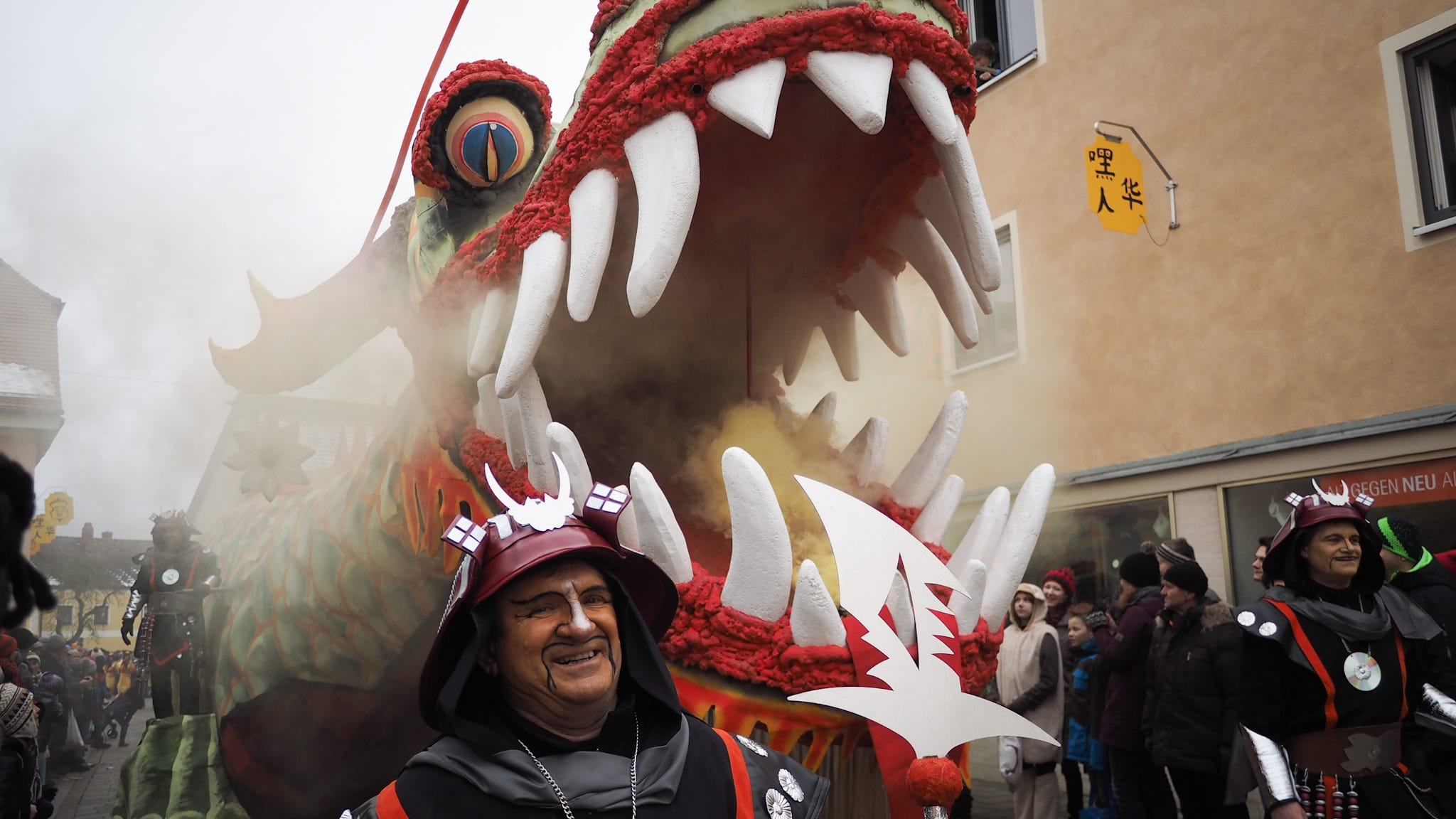Inside the Surreal, Offensive Tradition of ‘Bavarian China’
Each year this small German town has a 'Chinese' parade, complete with an emperor in yellow-face and paper dragons galore.

Photos by Hilda Hoy
Dawn is just beginning to tinge the horizon blue when a cannon blast shatters the quiet of the small Bavarian town. I shuffle from my bed to the window, pushing aside the paper garlands of yellow Chinaman figures to gaze blearily at the wintry landscape. The tourism office has dubbed Dietfurt, population 6,084, “Bavarian China” and “Town of the Seven Valleys.” The apartment I’ve rented for the week looks out onto one of those valleys, an expanse of untrodden snow fading into a dark hollow cloaked with bone-chilling mist. Were it not for the town’s pride and joy, the annual Bavarian China parade taking place this afternoon, I can’t imagine any reason I’d ever come here.
Fifteen minutes and one coffee later I’m tiptoeing down the icy front steps, following my ears toward the booms. After a few turns, there they are: a motley crew of thirty bedraggled clowns shuffling toward me like zombies. Between them they’re heaving a noise cannon, a marching band’s worth of instrum…
Keep reading with a 7-day free trial
Subscribe to Narratively to keep reading this post and get 7 days of free access to the full post archives.



